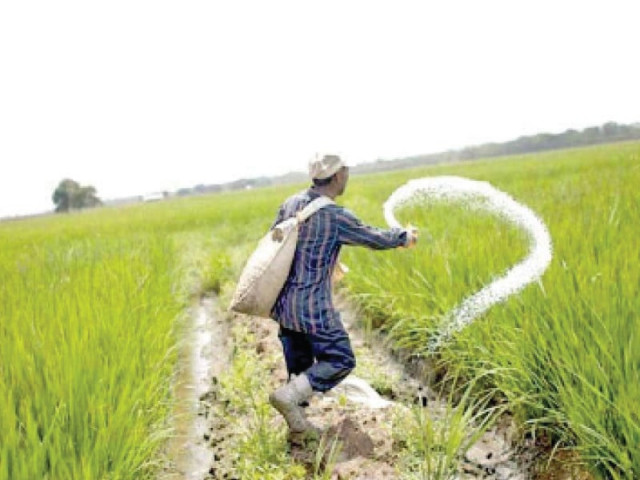Fertiliser industry lacks competition
CCP probes pricing mechanism as sector gets huge benefit of subsidised gas

The Competition Commission of Pakistan (CCP) has recommended the initiation of legal proceedings against fertiliser manufacturers after an inquiry found them involved in pocketing billions of rupees due to subsidised gas supply.
An inquiry committee, which has advocated proceedings against the leading fertiliser companies, examined the profitability, cost structures, subsidies and their impact on urea prices for farmers. The investigation raised key questions about the pricing strategies employed by the urea manufacturers.
The cost structure analysis revealed that the main raw material for urea production, which was feed gas, varied in prices for each manufacturing unit. Despite the difference in costs, urea producers maintained identical prices, prompting the CCP to question the pricing mechanism put in place by the industry.
The fertiliser industry’s annual gas consumption stands at 266,796 million cubic feet, of which 83% is utilised as feedstock and the remaining 17% as fuel stock.
Subsidies provided by the government on feedstock gas amount to approximately Rs152 billion per year, aimed at ensuring affordable urea prices for farmers. However, despite the subsidy, urea prices have continued to soar, resulting in a windfall for the producers.
In 2021, Fauji Fertiliser Company (FFC) reported a gross profit margin of 35.78%, net profit margin of 20.15% and return on equity (ROE) of 46.08%.
Similarly, Engro Fertilisers recorded a gross profit margin of 33.3%, net profit margin of 15.9% and ROE of 44.97% for the year. The ROE is notably higher than the Indian urea industry, where the return on equity has been capped at 20%.
A concerted approach to set uniform prices was observed, with all urea manufacturers in Layyah district increasing prices by Rs482 per 50kg bag (or 27.26%) between February 2022 and November 2022.
Price adjustments, both increases and decreases, were made simultaneously by all companies, indicating a coordinated pricing strategy, it was noted.
In response to the findings, the CCP issued show-cause notices to the urea producers, demanding an explanation for what appeared to be coordinated fixation of prices.
The investigation underscored the importance of ensuring fair competition and protecting consumer interests by the fertiliser industry.
In its inquiry report, the CCP said that for Layyah district in the period from January 2021 to November 2021, the fertiliser manufacturers raised prices by Rs51 per bag.
Similarly, for the period from February 2022 to November 2022, the prices were increased by Rs482 per bag, or 27.26%.
The agriculture sector contributes 22.7% to Pakistan’s overall gross domestic product (GDP) – the size of national economy – where fertiliser is a vital input with average consumption of 207 kg per hectare.
Fertiliser constitutes the second largest cost component for most crops after the rent on land, accounting for approximately 17% of the total cost.
The decision by the Fertiliser Manufacturers of Pakistan Advisory Council (FMPAC) and its member companies to increase the price of urea by Rs48 from Rs1,720 to Rs1,768 per bag resulted in gains of Rs1.8 billion in four months of the Rabi sowing season from October 2021 to January 2022. It was also reflected in the Economic Survey of Pakistan 2021-22.
Total demand for urea in the Rabi season from October 2021 to March 2022 was calculated at 3.19 million tons. The price of Rs1,768 was set for four months from October 2021 to January 2022 and urea demand in the same period came in at 2.13 million tons or 38.65 million bags.
With the price increase of Rs48 per bag, the total impact is estimated at Rs1.8 billion.
FFC’s profit before tax in 2021 stood at Rs30.3 billion, Engro’s earnings were Rs29.8 billion and Fatima Fertiliser earned Rs28.2 billion. Only Agritech Limited posted a loss of Rs4 million.
In light of the findings, the inquiry committee recommended that the commission may consider initiating proceedings under Section 30 for prima facie violation of Section 4(1) read with sub-section 4(2)(a) of the Act.
Published in The Express Tribune, April 7th, 2024.
Like Business on Facebook, follow @TribuneBiz on Twitter to stay informed and join in the conversation.



















COMMENTS
Comments are moderated and generally will be posted if they are on-topic and not abusive.
For more information, please see our Comments FAQ